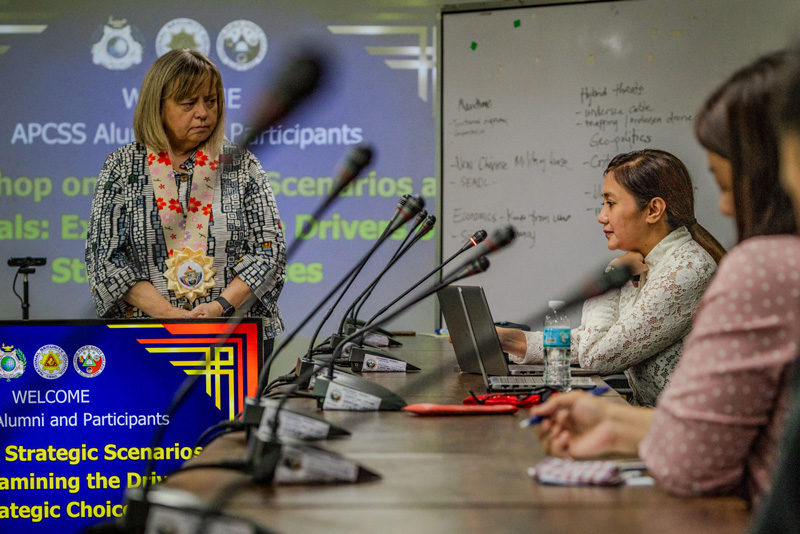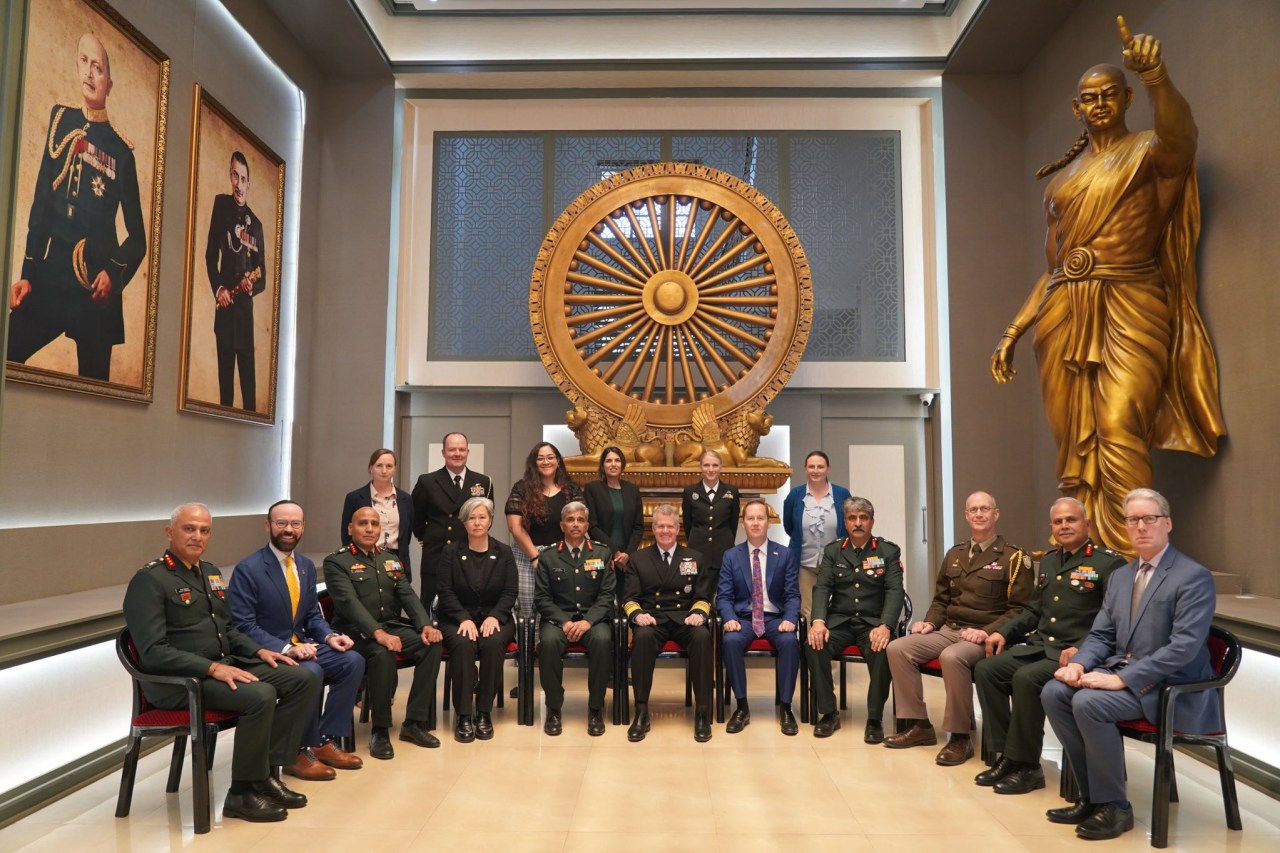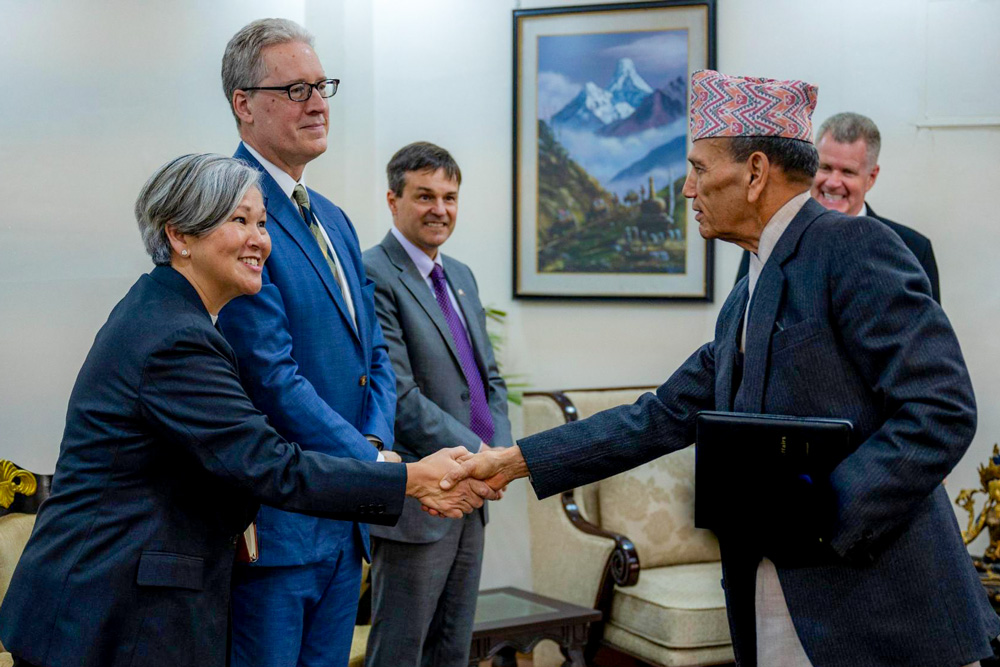By Dr. James M. Minnich
HONOLULU – (July 29, 2025)
North Korea is no longer merely surviving—it is strategically maneuvering. Against the backdrop of a fraying global order and eroding sanctions enforcement, Pyongyang has deepened wartime collaboration with Russia while leaning on China to sustain its economic core. What may appear as opportunistic bandwagoning is, in fact, a calibrated strategy—one that seeks regime durability, economic windfalls, and enhanced geopolitical relevance.
According to Rachel Minyoung Lee, a Senior Fellow at the Stimson Center and a longtime Korea watcher whom I sat down with in Episode 48 of Dialogue, “North Korea is not doing this for the next, however many months that we’re in this war—there is something beyond that.” In recent years, that “beyond” has come into sharper focus.
Russia: Pyongyang’s New Wartime Enabler
Since 2023, North Korea has emerged as one of Moscow’s key wartime enablers. Pyongyang has reportedly supplied over 12 million rounds of artillery shells—accounting for an estimated 50% of Russia’s artillery use in Ukraine—alongside short-range ballistic missiles, small arms, and more than 25,000 uniformed and civilian personnel. North Korean troops and laborers, now deployed in Russia’s Kursk region, are contributing to both frontline combat and reconstruction, with additional offers of manpower reportedly on the table. Their presence underscores Pyongyang’s deepening commitment to Russia’s war effort—not just as a supplier of weapons, but as a wartime actor in its own right.
While the immediate rewards include wheat, oil, military know-how, and hard currency, the longer-term stakes are larger. This relationship, argues Lee, underwrites North Korea’s sweeping “20×10” development campaign—an ambitious domestic plan to build 20 industrial factories a year for the next decade. But even this modernization drive, she cautions, may be fleeting: “Unless Kim Jong Un can fundamentally restructure the economy, there’s a shelf life to this growth—regardless of Russian support.”
China: The Enduring Economic Lifeline
Despite the high-profile pivot to Moscow, over 98% of Pyongyang’s recorded trade still flows through China. Beijing provides not just fuel and food, but the quiet stability that enables Kim to focus on longer-term statecraft. “He’s taking this dual-track approach,” Lee explains, “using these two countries for different purposes”—military gains from Moscow, systemic support from Beijing.
Yet the delicate balance is not without friction. North Korea’s recent state media coverage of Kim’s visit to the Chinese war memorial was conspicuously cold, raising questions about subtle recalibrations in the bilateral relationship. For Lee, this may signal either “a fundamental shift in how North Korea views China—or simply the latest in a long series of vicissitudes.”
Strategic Autonomy, Sanctions Erosion
At the heart of Kim’s diplomacy lies a familiar paradox: the pursuit foreign support without foreign dependence. Even as Pyongyang absorbs advanced weapons knowledge from Moscow, it remains “uncomfortable becoming technologically reliant on Russia,” Lee notes, underscoring North Korea’s desire to retain strategic autonomy in a world of shifting alliances.
Nowhere is this paradox more visible than in the crumbling architecture of the international sanctions. “China and Russia are the primary enablers of sanctions evasion,” Lee argues, giving North Korea “tremendous breathing space.” The 2024 dissolution of the UN Panel of Experts dealt what she calls a “heavy blow to global credibility,” further hollowing out the sanctions regime that once constrained Pyongyang’s behavior.
Still, Lee advises against abandoning sanctions outright. “They haven’t worked the way we wanted them to—but that doesn’t mean they serve no purpose.” Rather than betting solely on punitive measures, she urges a shift in U.S. strategy: “Kim is genuine about improving the economy,” she says. But for diplomacy to resume, “Washington must fundamentally alter its policy—starting with dropping denuclearization as a precondition.” From Pyongyang’s view, she adds, that demand has become “an insurmountable obstacle.”
Outlook: A Sophisticated Play in a Fracturing Order
In this fractured world order, North Korea’s “Russia–China Play” is not a pivot, bloc, or permanent realignment—it is a hedging strategy, honed for an era of weak enforcement and flexible allegiances. Understanding that strategy is essential—not only for specialists of Korean Peninsula dynamics, but for any policymaker confronting the new multipolar terrain.
Further Reading
Rachel Minyoung Lee recommends Sangsoo Lee, “Why North Korea’s Done Hedging,” Foreign Policy, July 10, 2025.









Leave A Comment